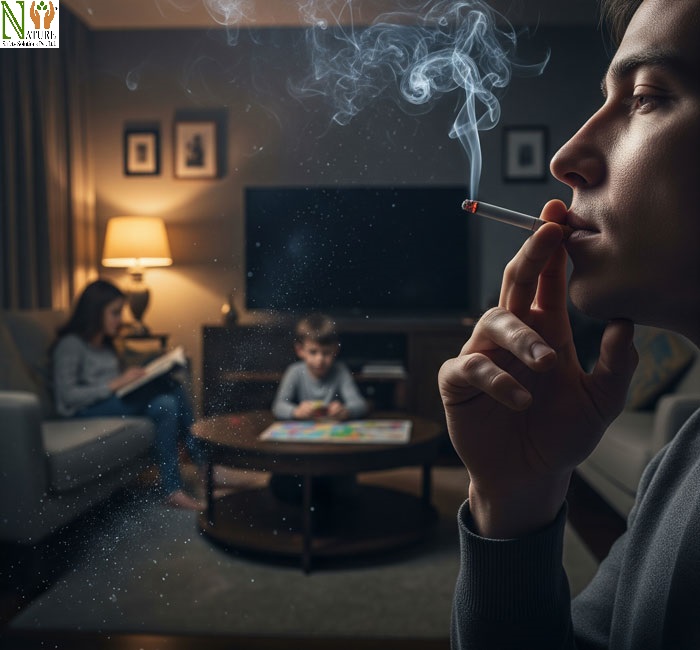Smoking indoors may feel harmless, but it is far more dangerous than it appears. The smoke from just one cigarette can stay in the air for hours, spreading toxic chemicals throughout your home.
It affects everyone around you—especially children, elderly family members, and pets—while also increasing the risk of fire and damaging your walls, furniture, and air quality. Keeping your home smoke-free is a small step that can make a big difference to your family’s safety and health.

Impact on Family Health
When you smoke indoors, your family breathes the same toxic chemicals that you do, even if they don’t smoke. Children exposed to secondhand smoke are more likely to suffer from ear infections, asthma attacks, or chronic respiratory illnesses. Infants face an increased risk of sudden infant death syndrome (SIDS).
Pets are also affected. Dogs and cats inhale the smoke and can develop respiratory problems or even cancer over time. Their fur traps harmful particles, which they ingest when they groom themselves.
Fire Hazards
Smoking indoors greatly increases the risk of accidental fires. A lit cigarette that falls on furniture, bedding, or paper can ignite a fire in minutes. Many house fires caused by smoking happen when someone falls asleep with a cigarette still burning.
Even improperly discarded cigarette butts can start fires in trash bins or near flammable items. It only takes one careless moment to cause irreversible damage to your home and endanger lives.
Damage to Your Home
Cigarette smoke doesn’t just harm health—it damages your living space. Over time, smoke leaves yellow or brown stains on walls, ceilings, and windows. The smell of smoke gets trapped in carpets, curtains, and furniture, becoming almost impossible to remove.
The air ducts and ventilation system can also carry the odor and residue throughout the house. This not only makes the home less pleasant but can also reduce its market value and lead to expensive cleaning or renovations.
Financial and Emotional Costs
Indoor smoking can have financial consequences. Landlords often charge high cleaning fees if smoking damage is found in rental properties. Homes with a history of smoking may sell for less due to lingering smells and visible damage.
The emotional cost is even greater. Knowing that your habit could harm your family’s health or safety can create stress and guilt, which makes the habit even harder to justify.
How to Keep Your Home Smoke-Free
The easiest way to avoid the hazards of indoor smoking is to smoke outside. Create a designated outdoor space where you can smoke safely, away from windows and doors. Use an ashtray filled with sand or water to ensure cigarettes are fully extinguished.
Encourage guests to smoke outdoors as well. Wash your hands and change your clothes after smoking to reduce thirdhand smoke exposure, especially if you have children or pets in the home.
Also read:-
